
This post was written in partnership with Waterl<ss. As always, thoughts and opinions expressed here are entirely my own and based on my own experiences.
The way that I see the world was forever changed back in early 2018. I was just starting to get settled into my new home in Cape Town when I heard the announcement: we were counting down to what came to be known as the dreaded “Day Zero.”
The reality of one million homes in Cape Town not having access to running water was terrifying.
After years of drought, one of Africa’s wealthiest and most commercially developed cities was about to lose its most precious resource.
We were instructed to only use greywater (that’s water that has already been used once, e.g. for showering or washing dishes) for flushing the toilets.
At home, showers were to be kept to 90 seconds and public tabs were completely shut off.
Growing up in Southern California, water conversation had always been an important topic, but it was a more a message of not using more than you feel like you needed. Drought tolerant gardens were encouraged, but nobody was really cracking down on restricting how many gallons you went through in a day.
In Cape Town, everyone was keenly aware of every drop.
Luckily, the commitment of the community, the donations of farmers, and a couple of extra-wet winters helped prevent Cape Town from completely running out of water. I learned firsthand just how much you can do as an individual to help conserve water and how greatly those efforts can impact a community.
Water is one of the most precious resources on the planet, and even though it might seem difficult for just one person to make an impact, you truly can. Every step you take to help conserve water matters.
Let’s dive into how to become a more water-conscious traveler!
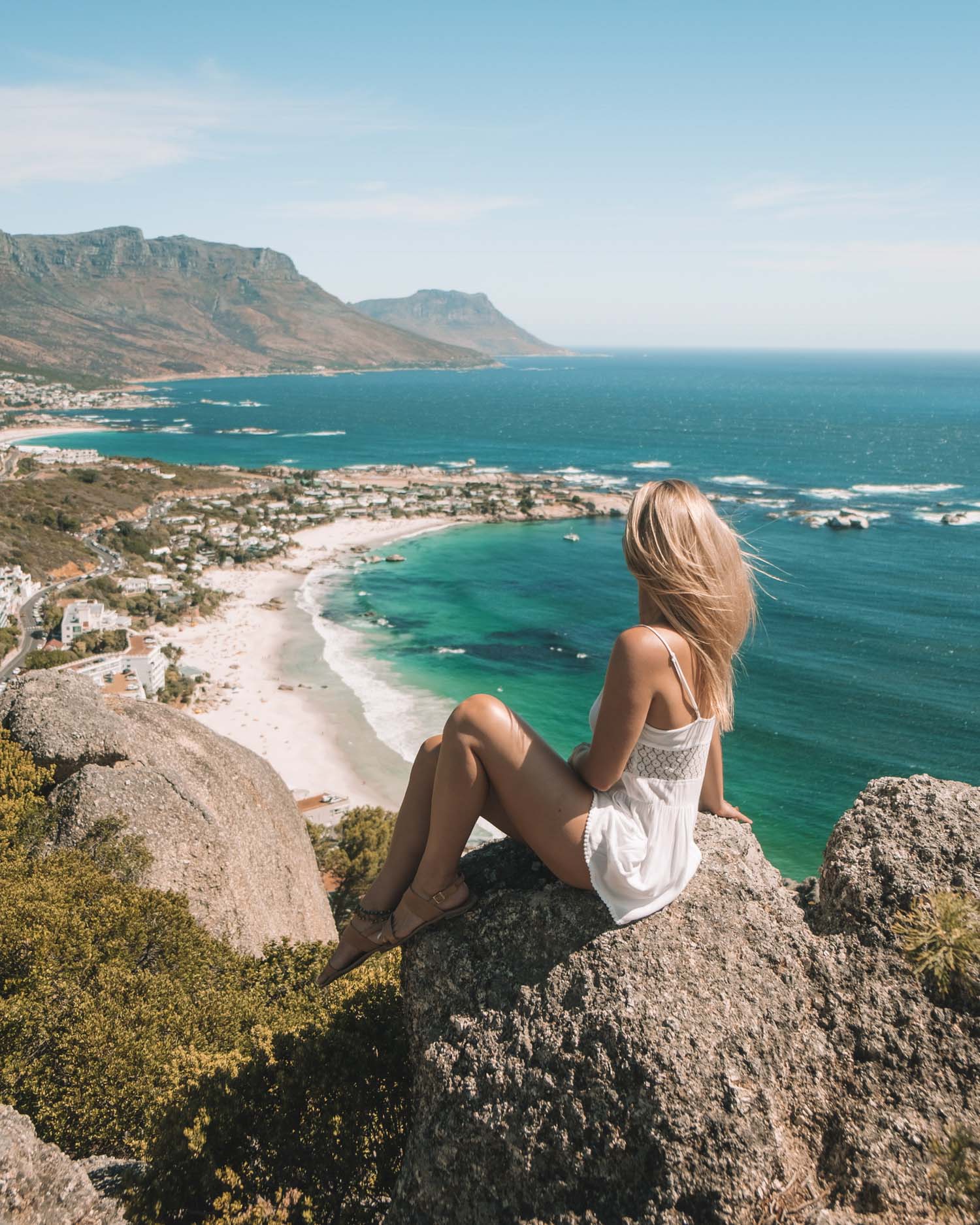
Cape Town, South Africa
What’s Happening Around the World with Water
The population of the world is approaching 8 billion people. If you are one of those 8 billion who has constant access to safe water, count your blessings. There are 2.4 billion people who are exposed to water-borne diseases. By 2025, experts predict that two-thirds of all people will be affected by water shortages.
Yes, you read that right!
It’s not just happening in Africa. North America, Europe, Australia, and every other continent on the planet have been impacted. It’s not a nice topic, but the water crisis is real.
In Cape Town, we were restricted to 13 gallons (50 liters) of water per person per day. To get a sense of how much that it, the average American uses around 100 gallons (375 liters) every day—showering, washing dishes, doing laundry.
That’s not including the water used to produce products or grow food—that’s just water flowing through your tap at home.
This cool calculator will calculate your estimated water use to give you a sense of where you’re at. Even if you feel like you’re pretty conservative, it’s shocking to see how quickly 100 gallons add up.
Facing Day Zero was stressful and scary BUT it taught me an important lesson: people get used to things quickly. Dramatically decreasing my water usage got easier over time and, nowadays, I still have water-saving habits that I do on auto-pilot.
Using less water is actually pretty easy once you’re aware of best practices.
Tips for Being More Water Conscious
These days, one of my primary goals is to travel greener. I’ve talked about eco-friendly ways of travel and water conservation plays a central role. When you are traveling, there are so many easy ways to reduce your water usage.
Shower Less Often
Avoiding daily showers is a BIG one! Most people are raised thinking we should be showering daily. But, did you know, most healthcare professionals recommend showering every other day, or even only every third day?
Most of us are excessively cleaning and stripping ourselves of natural oils that actually protect our skin.
When it comes to your hair, opt for waterless haircare — like Waterl<ss’s line of high-quality hair care products! Waterl<ss Dry Conditioner to freshen up as needed. I LIVE for their No Residue Dry Shampoo and their Dry Conditioner, and now I only need to wash my hair every 3-4 days. Products like Waterl<ss that can replace a shower are amazing for saving water whether on the road or at home.
Read more about Waterl<ss Dry Shampoo and Conditioner for Your Next Trip here!
Simplify Your Sanitizing
Eco-friendly hygiene practices are always a good place to start. The first thing to learn is that germs can be a good thing! Of course, you want to wash your hands after using the bathroom and it’s good to stash away a sanitizer to use after touching germ hotspots like shopping carts and airplane seats, but you don’t need to keep everything sterile all the time.
Overcleaning can cause everything from dry skin to a weakened immune system. For your body and the planet, it’s okay to keep it simple sometimes.


Reuse Towels
After you shower, hang your towel out to dry as fully and quickly as possible. Doing this prevents smelly bacteria growth and allows you to use your towel for longer without needing to wash it.
A lot of hotels have a little sign in the bathroom about how to manage towels (often they’ll ask you to throw the ones to be washed in the tub or some similar signal). Spend a second to read their tips and follow suit—most green hotels now recommend reusing your towel for multiple days on end.
Skip Room Cleanings When Traveling
In general, it’s good to skip room service cleanings when possible. You probably don’t scrub down your home every single day and it’s not really needed in a hotel either. Unless you really need a refresh, hang the “Do Not Disturb” sign outside the door.
Doing Laundry
When it is time to do laundry, opt to wash on cold as often as possible. There are actually laundry detergents formulated for this so you can get a good clean without needing hot water.
I’ve talked before about how to clean clothes while traveling and have found a few great techniques for saving water. Unless your clothes are seriously filthy, sometimes all they need is a spot cleaning or little spritz of fabric refresher.
Shop for Fabrics That Use Less Water
Did you know that the cotton for a single t-shirt requires 2,700 liters (713 gallons) of water? And that’s just what’s needed for the materials—not the costs of transport and production.
Fortunately, there are fabrics out there that require less water.
When you are shopping for new clothes, have a look at the label. Opting for organic cotton, bamboo, or hemp rather than conventional cotton makes a huge difference in water usage. And, of course, buy thoughtfully. Choose pieces you really love rather than just buying anything that catches your eye.
Reduce Your Indirect Water Footprint
It’s obvious when we use too much water—like leaving the tap on while we brush our teeth or taking a long shower. But water also goes into the production of most of the things we use and consume on a daily basis. Reducing your meat consumption, shopping for local produce, and cutting down on sugar are all easy ways to make a big impact.
Water-Saving Takeaways
- Find Fabrics That Require Less Water
- Skip Room Cleanings During Travel
- Skip Showers and use Waterless Haircare (here’s my fave Dry Shampoo!)
- Use Sanitizer vs Washing
- Wash Laundry on Cold
- Shower Less Often
- Reuse Your Towels
- Reduce Your Indirect Water Footprint

What tips do you have for becoming a more water-conscious traveler? Please share them in the comments below!
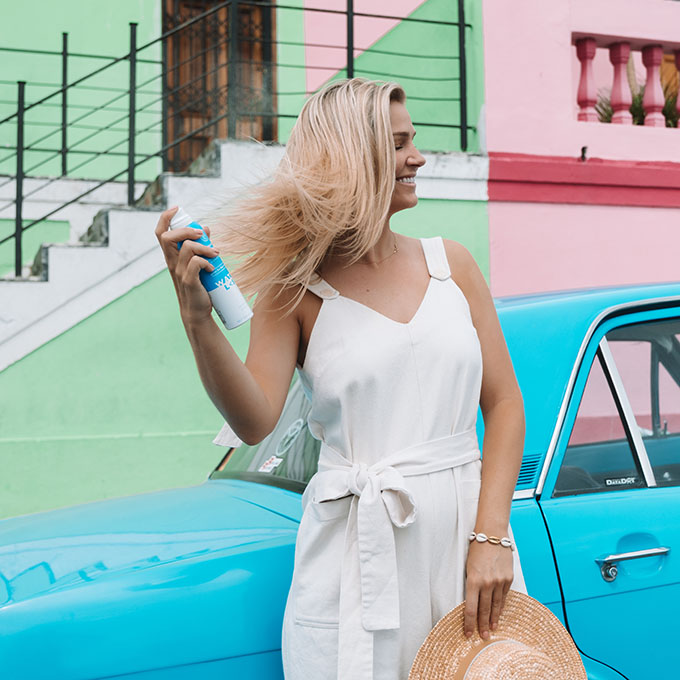


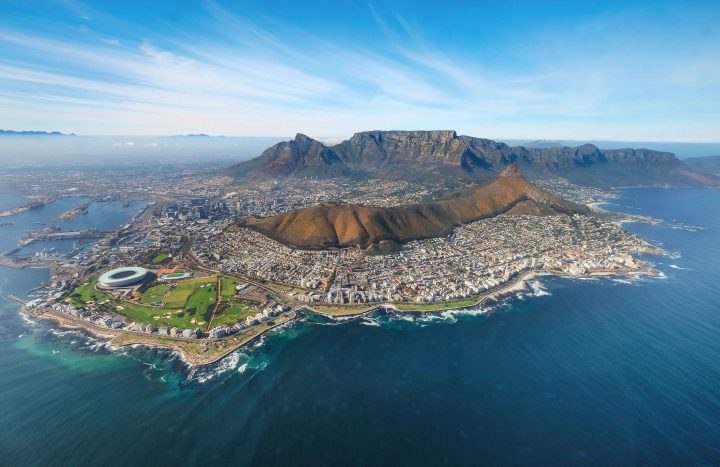

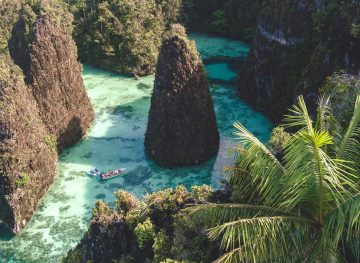

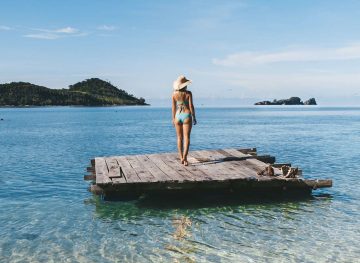





Thank you for taking the time to share this, and for recognizing World Water Day.
As a water district engineer in Colorado, USA, this article really affected me – I have begun to lose heart here, for regardless of how much evidence is presented to the public, it seems to fall on deaf ears. It is a serious problem, yet it is still taken for granted, mainly because people do not understand the full cycle of their consumption, whether that be direct water use or what they purchase. It seems like very few people know about how the agriculture, textile, and cosmetics industries use (and waste and sometimes pollute) a plethora of water. It is wonderful to read that people are becoming more aware of this, and hopefully adjusting as best as they can afford to. Maybe this will cause those industries to adjust, as well.
I am very grateful to you for posting about this – you are someone people might listen to. Just reading this gave me a bit of hope, which is helpful to someone losing heart, so thank you for that, as well.
Hi Ariel! It’s a cause/day very important to me and I’ve seen the impacts first hand. Thank you for sharing about your experience and I hope to continue educating folks about how finite our resources are — and what we can do about it.
I love how you took the time to share this with everyone. I’m impressed, honestly! If only people have the same heart and mindset as you, we can surely save lots of water. Thank you for sharing this, what a great read!
Hi there! Thank you so much for the kind words 🙂